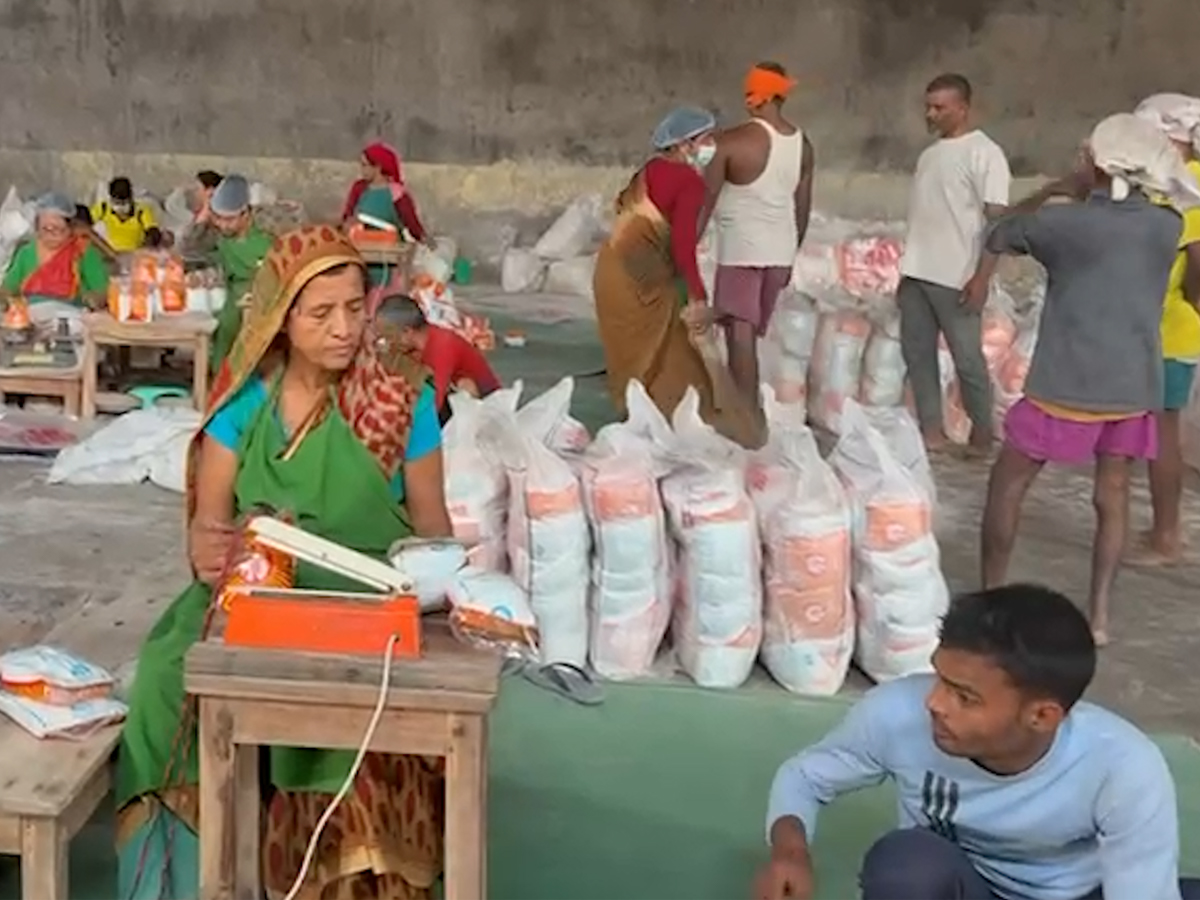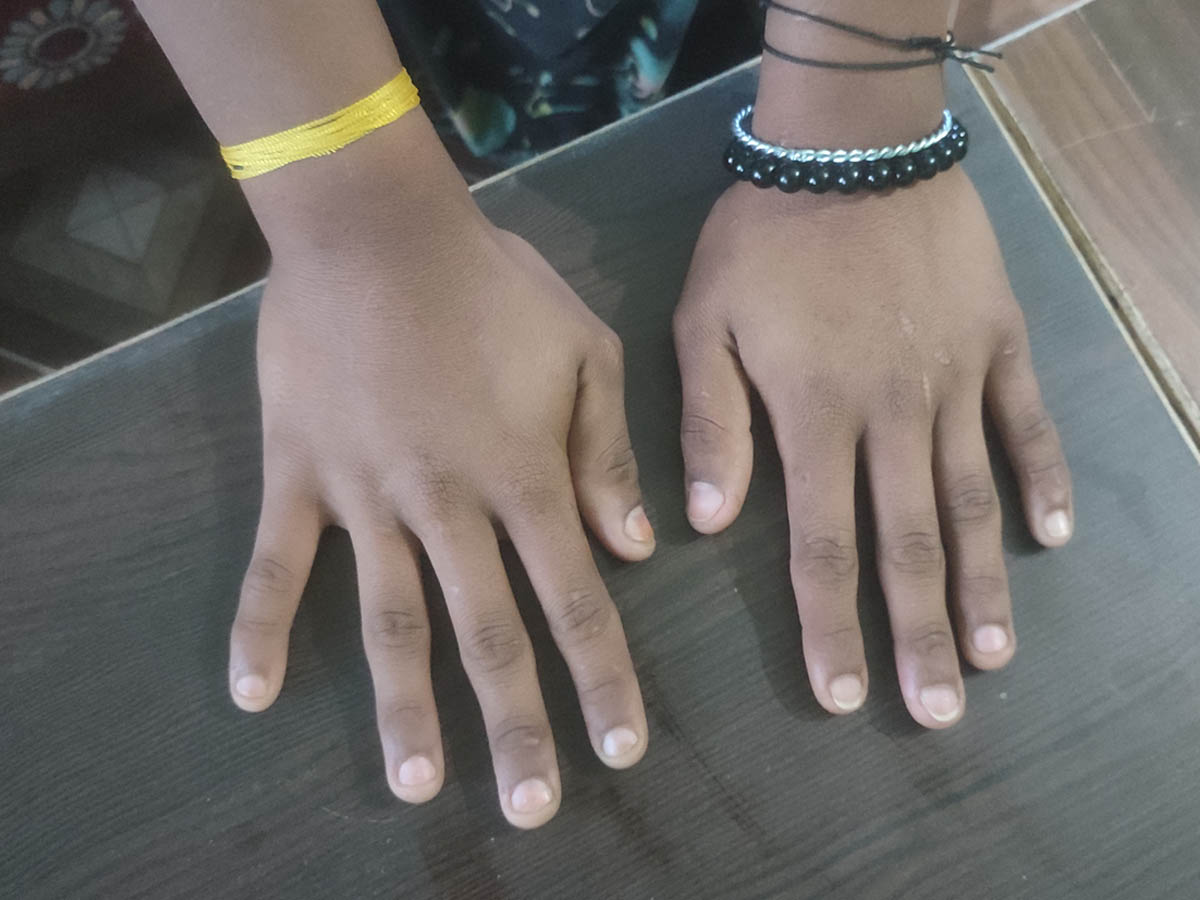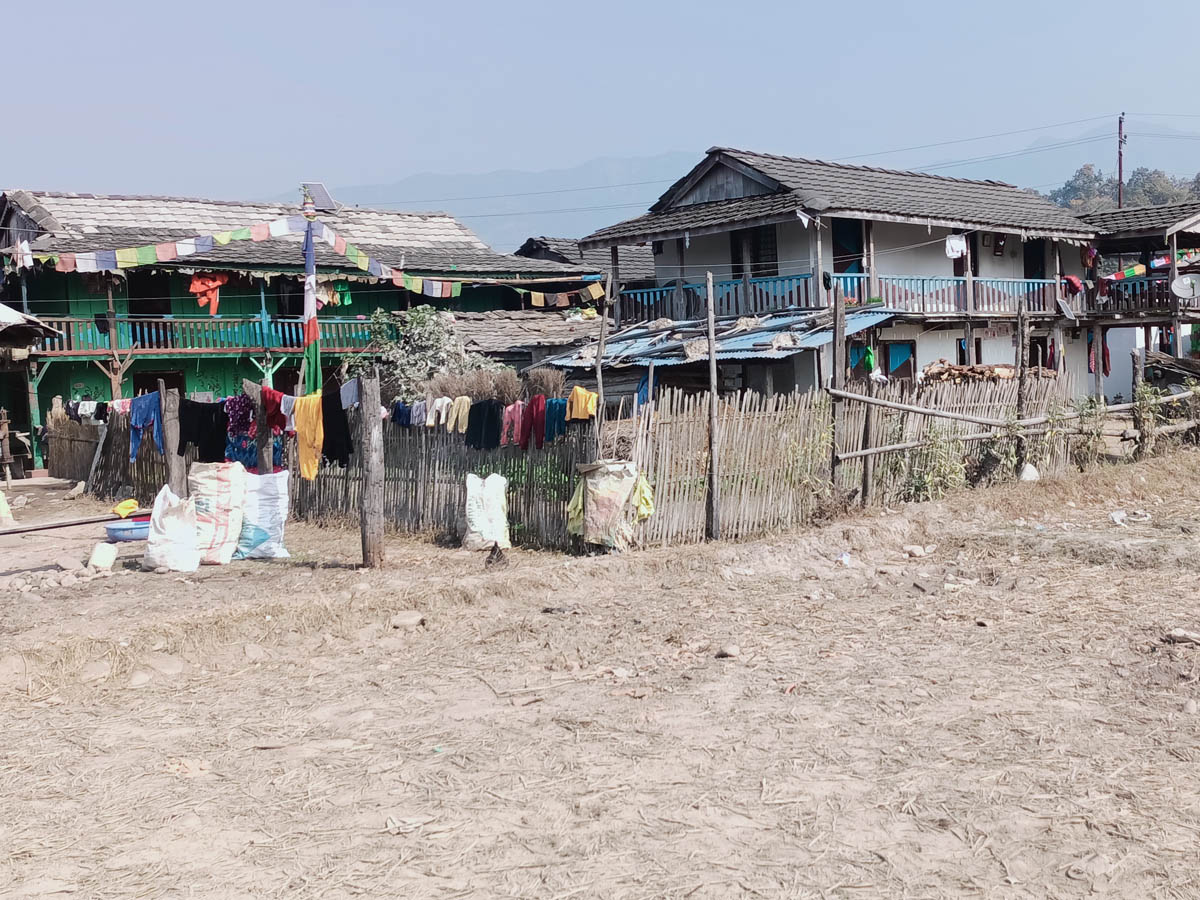Read this story in Nepali : विपद् प्रभावितहरू बेचबिखनको उच्च जोखिममा
--
After hearing that she could receive 5,000 rupees for attending a one-hour religious ceremony, Kusum (name changed) from Sunsari felt tempted to go for it. It had been a long time since she had any delicious food or wore new clothes. Her school uniform had been mended so many times that it no longer resembled its original form.
On the night of September 15, 2020, Manika Dhakal, a sister by acquittance, came to stay at her (Kusum’s) house. When Kusum saw Manika use a smartphone, Kusum also developed a desire to own a mobile phone for herself. Manika, who had stayed overnight at Kusum's house, promised to buy her a mobile phone with the 10,000 rupees they would get from attending a religious ceremony together. Due to the COVID-19 lockdown, Kusum’s father had lost his job, and the family was facing financial difficulties. Enticed by the prospect of earning money and buying a phone, Kusum agreed. “Come with me to Biratnagar; there’s a big religious ceremony happening where young girls receive a blessing and 5,000 rupees,” Kusum recalls Manika telling her.
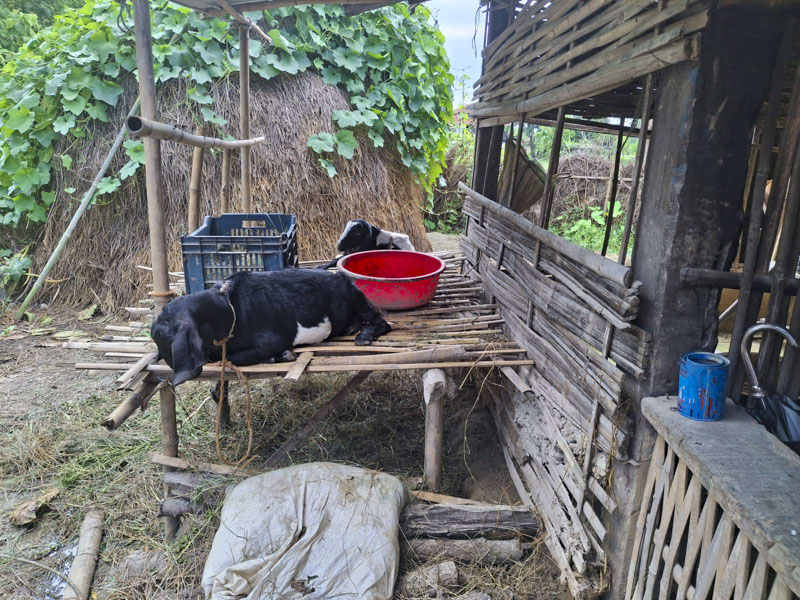
Four days after coaxing Kusum, Manika called her on September 19, 2020 to say ‘you have to be ready by tomorrow morning.’ As planned, on September 20, 2020, Manika called at Kusum’s mother’s phone while Kusum was still in bed and asked Kusum to meet at a nearby intersection.
“My sister called and said, ‘Sister, I’ve arrived at Shiv Chowk in a Maruti van, quickly get ready and come to me,’” Kusum later stated in her police statement. She hurriedly reached the spot where Manika was waiting.
From there, they traveled to Itahari by van, and then by motorcycle and car and they were taken to Simraha, near the Indian border. Kusum explained that once they reached there, she got scared and decided to take a bus back from Forbesganj, where she eventually met child monitors at the border who helped her narrate the entire incident.
Meanwhile, the situation at Kusum's home had already spiraled into chaos. Her mother had learned that Kusum had gone to Biratnagar with her cousin. Despite repeatedly trying to call Manika, the phone was unreachable. As dusk fell and Kusum did not return, her parents grew increasingly anxious, as Kusum had just turned 17. Kusum’s mother recalls the panic and crying that ensued at home.
As they were preparing to go to the police through the local development organization, around 7 pm, a call came to Kusum’s mother’s phone. “A stranger on the line said, ‘Hello, I’m calling from an organization called Sana Haat. Where did you send your daughter today?’ We were utterly shocked, ,” Kusum’s mother shared.
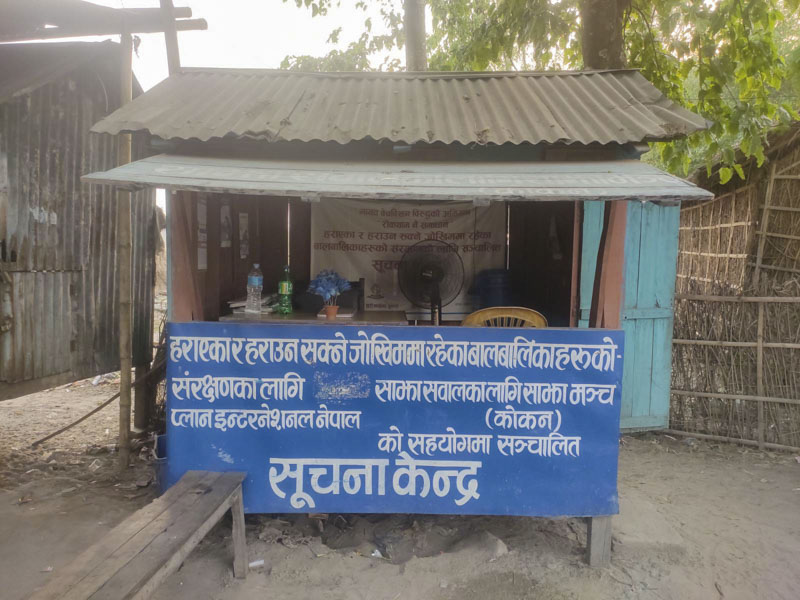
The police filed a case of human trafficking and transportation against Morang native Manika Dhakal, Saptari’s doctor Sumit Kumar Mandal (alias Prem), and Saptari’s Shubham Sah, accusing them of trafficking Kusum to India for prostitution. The District Court of Morang found Manika and Sumit guilty of intending to force Kusum into prostitution in India and sentenced them to seven years of imprisonment each. Shubham is still at large, and his case is pending.
Families affected by disasters often look for ways to escape their dire situations. Human traffickers easily exploit such vulnerable individuals, making them highly susceptible to trafficking. Kusum faced such a risk, and it was none other than her own cousin who tried to traffic her.
Like Kusum, Rajani and Sarita (names changed) from Dharan also narrowly escaped being trafficked. The pandemic had left Rajani’s father jobless, pushing the family into severe financial hardship. With no income other than daily wages, and no citizenship certificate to claim government relief, Rajani’s family was in deep distress.
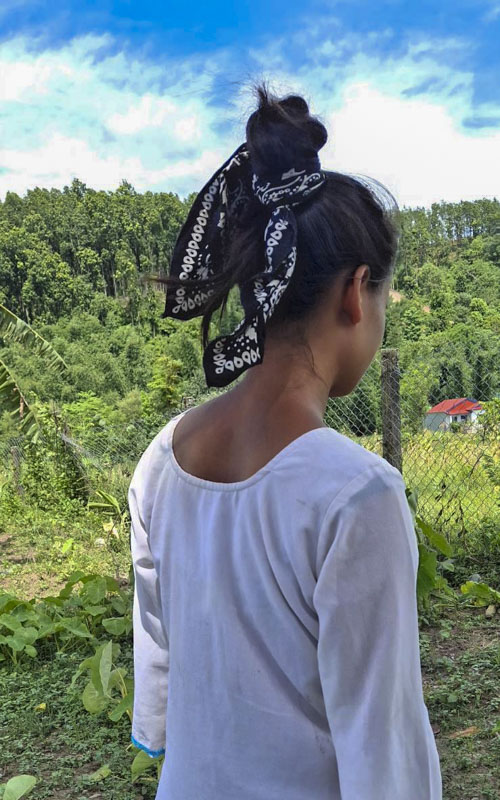
After learning of the family's condition, a man named Lallan proposed to Rajani’s mother that he would find work for her daughter. Lallan was an acquaintance of the family. Feeling hopeful that her daughter would find work, Rajani’s mother readily agreed to send her, but Rajani hesitated. When Rajani refused, her mother suggested Sarita as an alternative. Lallan assured both girls would find jobs and took them on a motorcycle.
On May 9, 2020, while traveling to Lahan, Lallan was stopped at a police checkpoint, not far from the border, but on the Pakali-Rupnagar road in Barahkshetra Municipality. Seeing three people on the motorcycle, the police stopped them for questioning. As they began asking questions, the situation, initially considered casual, turned serious.
According to Rajani and Sarita, Lallan had instructed them to say, if asked by anyone: “We are returning from Dharan after visiting our sick father. We are from Janakpur.”
During questioning, Lallan panicked, and as the girls’ stories contradicted, they eventually revealed that they were being taken for work. The police rescued the two girls and arrested 28-year-old Lallan Mandal from Mahottari, Jaleshwar, along with 21-year-old Mahesh Prasad Yadav from Nawarajpur, Siraha, and 27-year-old Sushil Sah (alias Sushil Safi), who had provided the motorcycle. They were charged with human trafficking at the Sunsari District Court on June 3, 2020.
After hearing the case, Sunsari District Court Judge Suman Kumar Neupane found Lallan guilty on September 13, 2022and acquitted the others. On September 21, 2022, the court sentenced Lallan to 10 years and 1 month in prison, along with a fine of 100,000 rupees. Lallan is currently serving his sentence. He stated in the court that, during his visit to Dharan to buy medicine, Rajani’s mother, whom he knew, had asked him to take her daughter as they were struggling to get by due to the lockdown.
Disasters create a fertile ground
According to Gitanjali Sharma of Maiti Nepal, Biratnagar, those affected by disasters and violence are at a higher risk of human trafficking. While the impact of disasters may not be immediately apparent, many cases show that people are affected in some way, says Sharma.
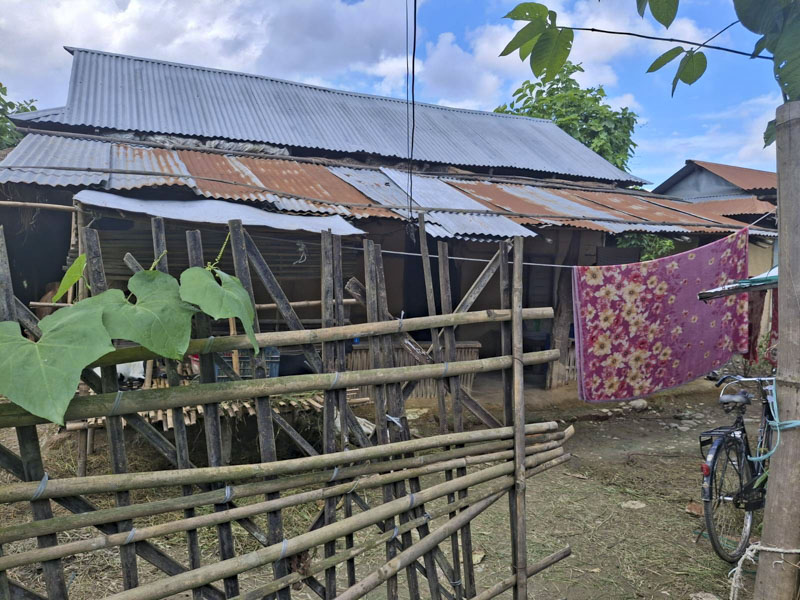
According to Bibash Shrestha, who has been running a border surveillance program against human trafficking and transportation for 15 years through the Sana Haat organization in Biratnagar, girls like Kusum are at high risk from those who take advantage of vulnerable situations for profit.
Disasters not only put people at risk of financial crises, and difficulties with food and clothing, but also other risks. Social activist Manjita Upadhyay also states that disaster events put women and children at risk in some way, and trafficking remains a high risk. Data from various organizations and Nepal Police also show that trafficking cases increase after major disasters. The data on trafficking and smuggling in the province from 2005 to 2013 reflects this.
Gautam Mishra, spokesperson for the Anti-Human Trafficking Investigation Bureau of Nepal Poilce, explains that during natural disasters, people face heightened economic hardship, increasing the likelihood of being trafficked. Whether it was the Gorkha earthquake of 2015, the Jajarkot earthquake of 2023, the floods in Koshi, or the fires in Jhapa, or the annual floods in the Terai, families affected by these disasters are at risk, says Mishra. According to him, in the 2015 earthquake, more than 9,000 people lost their lives, and many families lost their breadwinners and became homeless. Subsequently, dependents began searching for work.
"The COVID-19 pandemic brought another disaster, weakening many people's economic status," says Mishra. "Those affected seem forced to seek employment in hotels, restaurants, snack bars, discos, and dance bars in big cities." According to him, there have been cases registered with the police where people, under the pretext of providing jobs, were subjected to violence, low wages, prostitution, and sexual exploitation.
How tall are you?
According to Manika Dhakal's statement to the police, her acquaintance, Sumit Kumar Mandal, had asked her about her height. She said she was 5 feet 3 inches tall.
On September 15, 2020, Sumit took Manika to his room in Biratnagar and measured her height. She was only 5 feet 1 inch tall. Sumit then asked Manika if she had any other sisters at home, stating that he needed someone 5 feet 3 inches tall.
In his statement to the police, Sumit said that Manika had told him about her cousin. He then gave a motorcycle to a boy and had Manika dropped off where she was told, and she went to stay at Kusum's house. That night, she told Kusum that if she went to the puja in Biratnagar, she would receive 5,000 rupees as a gift.
"They will take you to a dark room, and men with black marks on their foreheads and swords in their hands will come and worship you. During that time, you must sit still and straight without moving. The puja doesn't take long, and afterward, they will give you 5,000 rupees. But if you tell anyone about this, the deity will get angry, and the puja will not succeed. You must not tell anyone through any means," Manika's sister had convinced Kusum, according to Kusum's statement. In her statement to the court, Manika said that Sumit had told her the same thing.
According to Kusum, she was told not to tell anyone, and to sit in the puja after being measured. Her height and body measurements were taken with a measuring tape. After measuring her height, Kusum told the police, she saw Manika take a picture and send it to someone via Messenger.
Kusum's mother said that because they had measured her body, Kusum suspected that she might have been taken to India for a sacrifice. However, the District Court in Morang, in Judge Bharat Lamsal's bench, ruled that the body measurements were taken for the purpose of prostitution.
"...the defendants measured the height and weight of a young girl, claiming she was needed by an individual in India. There is no doubt that the purpose of taking her to India was for sexual exploitation or prostitution," the verdict stated. "It can be concluded that the primary objective of taking a 17-year-old girl by measuring her height, weight and body size was for sexual work."
Suffering in silence
During the coronavirus pandemic, Samira (name changed) from Sankhuwasabha district lost her parents at a young age. She was left alone after their death. Her brother, who had gone to India in search of work, had not been heard from.
She became close to a person she had a casual acquaintance with, whom she called ‘uncle’. However, it was the same person who was caught by Maiti Nepal while attempting to traffic Samira through Jhapa and Jogbani. "He seemed to care for me, would give me money from time to time, and check in on me, so I never thought he would do something bad to me," Samira regrets.
Geetanjali Sharma from Maiti Nepal, who was involved in her rescue, says, "A 14-year-old girl was being taken to India with the promise of employment. During questioning, it was found that she was at high risk of being trafficked, so we immediately gave her shelter at Maiti Nepal and handed over the person taking her to the police. However, Samira's relatives refused to file a case."
According to Sharma, Samira had disclosed that the person had sexually abused her. Despite this, Samira refused to pursue a rape case. She stayed under the protection of Maiti Nepal for six months, received sewing and tailoring training, and then returned.
Sharma said that the person had enticed the orphaned Samira by saying, "You are alone, come with me, I will find you a job, and we will stay together. In India, girls as pretty as you can easily earn good money."
Convicts threaten victims’ family
Kusum escaped trafficking, and those who attempted to sell her are serving their sentence. However, her father says that the traffickers' families have been threatening them. "We’ve received many threats from the perpetrator's side over the past years," he says. "From jail, they have told my relatives that they will get out and do whatever they can."
"They were caught while taking my daughter to India to sell her, and now they are in prison," he says. "I fear that once they serve their seven-year sentence and are released, they will cause trouble for us."
Rajani and Sarita's families have the same fear. "Our daughters are still here, and we constantly worry that they might be harmed if someone ambushes them on the road," says Rajani's mother.
Although Lalan was found guilty and imprisoned for Rajani and Sarita’s trafficking case, three others were acquitted. "The person responsible for handing the girls over to a hotel was acquitted, and we fear that he might suddenly show up one day and do something bad," says Rajani's mother.
(This investigative report was prepared through the NIMJN fellowship supported by the Australian Aid. All rights reserved with the author and publisher.)
Read our Republishing Policy here.

